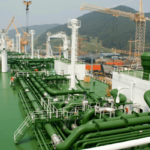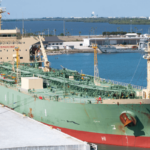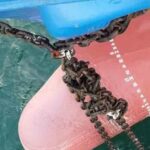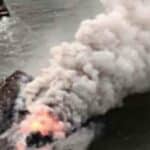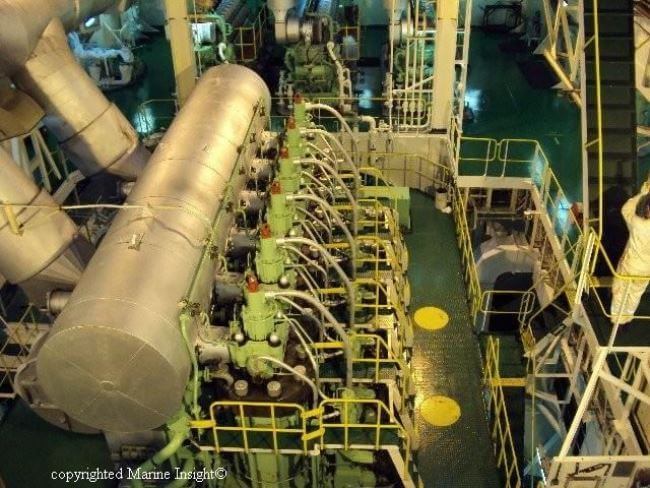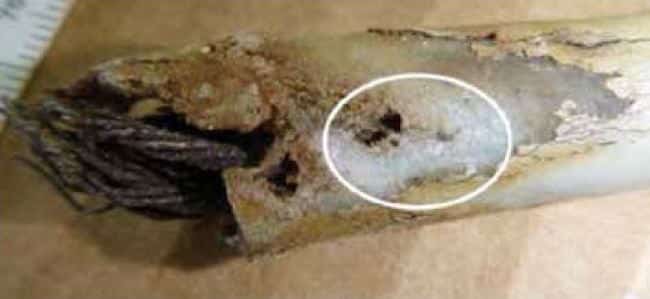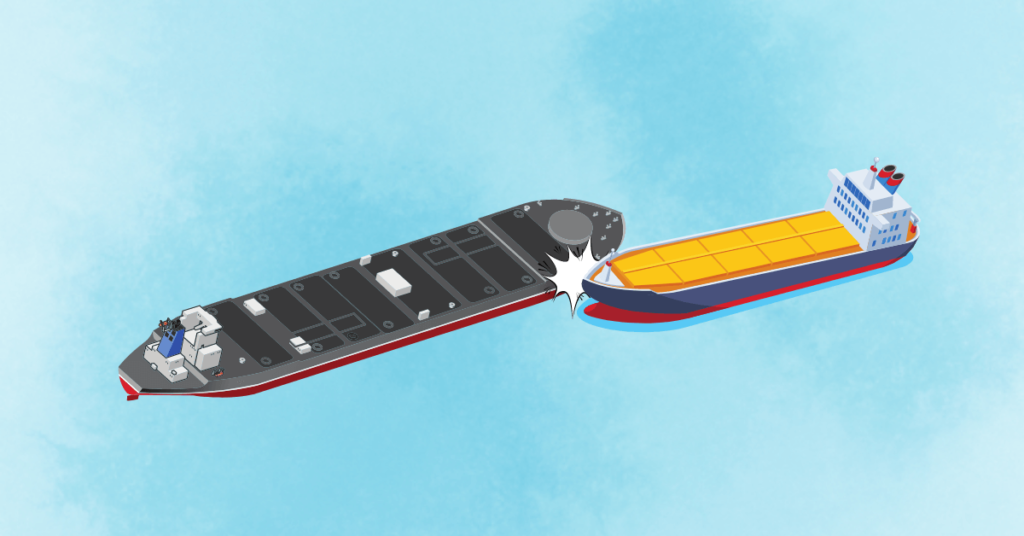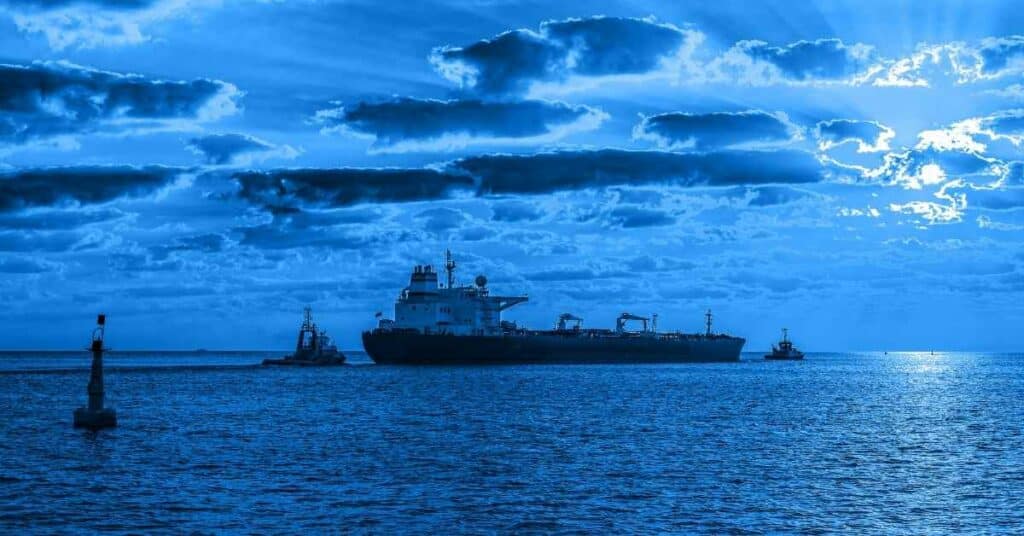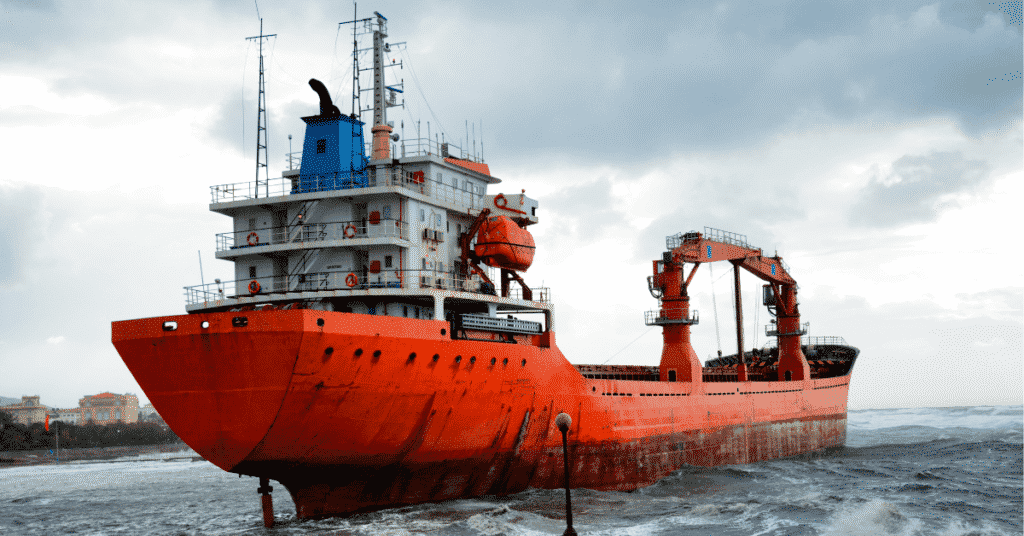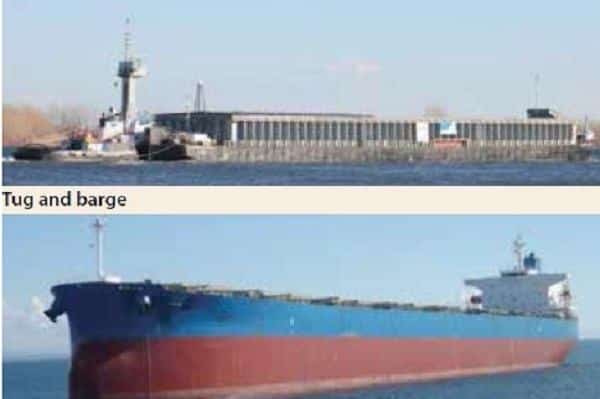Engine Start Issues Led To Contact Of Oil Tanker With Loading Dock
An incorrect solution to address a main engine start issue led to the contact between an oil tanker and a loading dock in the Port of Corpus Christi, the National Transportation Safety Board said Tuesday.
Marine Investigation Report 22/07 details the NTSB’s investigation into the March 15, 2021, contact of the oil tanker Riverside with Moda Ingleside Energy Center No. 4 loading dock near Ingleside, Texas. The vessel was carrying more than 717,000 barrels of crude oil and was bound for Lisbon, Portugal. No injuries or pollution were reported. The contact resulted in $550,000 in damages to the vessel and $7 million in damages to the dock.
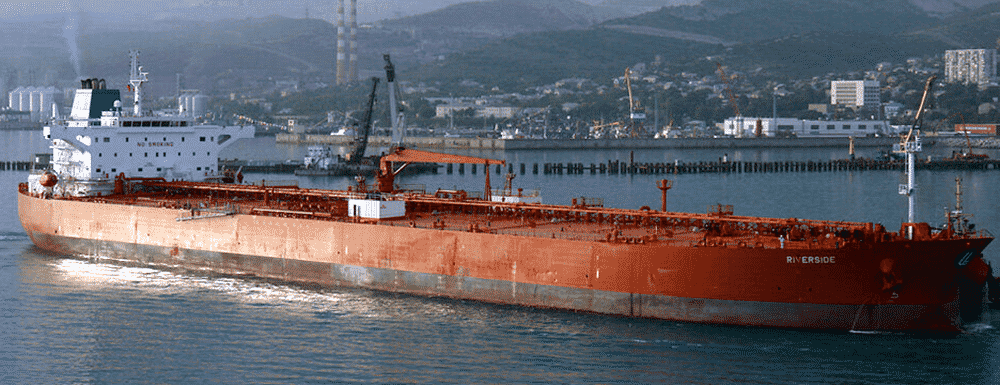
On the date of the casualty, two pilots from Aransas-Corpus Christi Pilots boarded the Riverside to assist with maneuvering the vessel out of the port. While outbound in the Corpus Christi Channel, another tank vessel ahead of Riverside was also departing. The pilots of both vessels agreed the Riverside would slow down and allow the other vessel to depart the dock and proceed out of the port. The pilot ordered a series of engine orders to slow the vessel, including stop; the Riverside began to sheer to port and a starboard rudder order was not effective.
The pilot ordered dead slow ahead to increase the flow of water across the rudder, which required restarting the engine. The engine failed to restart on multiple occasions. Without propulsion, the Riverside’s maneuverability remained limited, and its port bow struck the mooring dolphin and catwalk at the end of the no. 4 Moda dock.
The Riverside experienced engine start issues three days prior to the casualty. After troubleshooting, the engine would start in the ahead mode but would not start in the astern mode. The chief engineer engaged the limit cancel mode on fuel injection and was able to restart the engine in both ahead and astern modes.
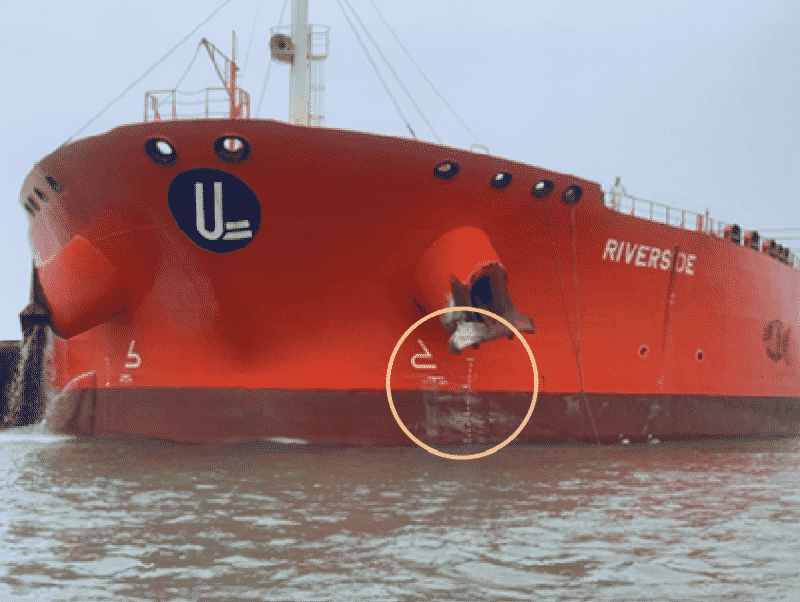
The crew believed the problem was resolved and did not request assistance from a diesel technician. However, the cause of the engine start failure was not properly identified or corrected, as such, the engine was not reliable to perform maneuvering demands encountered while transiting within a commercial port.
The NTSB determined the probable cause of the contact was the ineffective evaluation and incorrect solution for a main engine start issue by the company and shipboard engineers, overlooking the fouling of the main engine’s no. 6 air start actuator valve within the starting air distributor. Contributing to the casualty was the presence of moisture in and lack of routine drainage of the air start system, which allowed the buildup of hardened grease within the air start actuator valve.
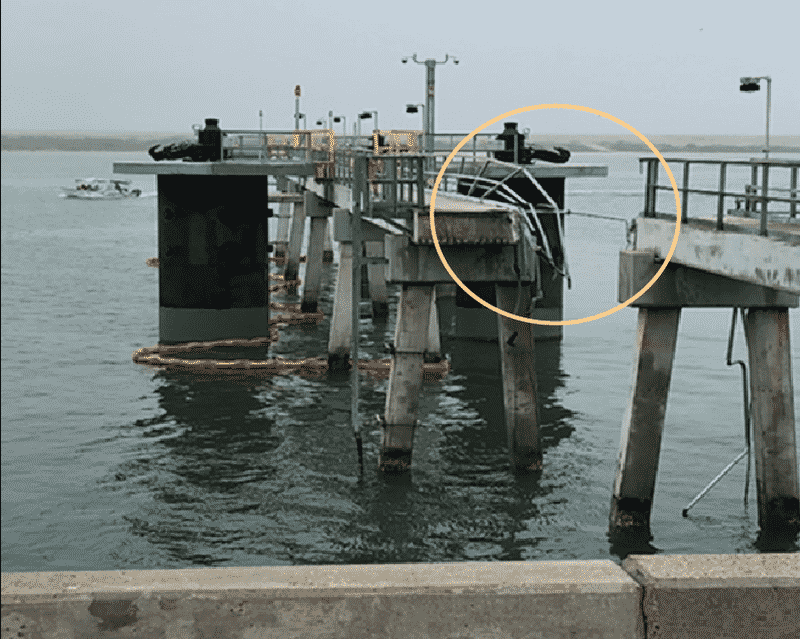
“Vessel operators should ensure their crews are equipped with the resources and training to execute timely and thorough maintenance and repair on engines,” the report said. “If the root cause of an engine operating issue cannot be determined, it is critical for a chief engineer and vessel owner/operator to have a diesel technician further evaluate and determine the cause of the malfunction. Vessel reliability is dependent on the complete resolution of equipment malfunctions and abnormalities when they occur.”
Marine Investigation Report 22/07 is available online.
Press Release | NTSB
Do you have info to share with us ? Suggest a correction
About Author
Marine Insight News Network is a premier source for up-to-date, comprehensive, and insightful coverage of the maritime industry. Dedicated to offering the latest news, trends, and analyses in shipping, marine technology, regulations, and global maritime affairs, Marine Insight News Network prides itself on delivering accurate, engaging, and relevant information.

About Author
Marine Insight News Network is a premier source for up-to-date, comprehensive, and insightful coverage of the maritime industry. Dedicated to offering the latest news, trends, and analyses in shipping, marine technology, regulations, and global maritime affairs, Marine Insight News Network prides itself on delivering accurate, engaging, and relevant information.
- Real Life Incident: Vessel Collision in Good Visibility
- Real Life Incident: Severe Injury To Deck Crew While Leaving Berth
- Real Life Incident: Departure Damage in Very Restricted Waterway
- Real Life Incident: Low Situational Awareness Has High Impact Consequence
- Real Life Incident: Fouled Anchor in a Designated Anchorage
- Real Life Incident: Fire On Barge Carrying Scrap Metal Causes $7 Million Worth Of Damage
Latest Case studies Articles You Would Like:
Subscribe To Our Newsletters
By subscribing, you agree to our Privacy Policy and may receive occasional deal communications; you can unsubscribe anytime.




